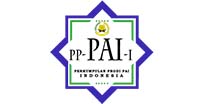The Causes Of The High Level Of Plagiarism In The Preparation Of Scientific Work In Islamic Education
Abstract
This study aimed to identify the causes of the high level of plagiarism in the preparation of scientific papers of Postgraduate Islamic Education students of Pontianak State Islamic Institute. The results of this research can be used as a reference solution to overcome the problem of plagiarism of scientific work in Islamic Education. A qualitative approach with phenomenology type was used in this research. The subjects of this research are the data collected are papers or other written works made during the Strata-2 (S-2) course consisting of, (1) students of the Islamic Education study program of IAIN Pontianak Postgraduate Class XV totaling 4 people, (2) lecturers of the Islamic Education study program of IAIN Pontianak Postgraduate Class XV totaling 4 people, and (3) leaders of the Islamic Education study program of IAIN Pontianak Postgraduate Class XV totaling 2 people. Data collection techniques and instruments used were, (1) interview techniques with semi-structured interview guideline instruments and (2) documentation studies with instruments in the form of documents and photographs. Data analysis was conducted using the Strauss and Corbin model. The results of this study found 5 (five) causes of plagiarism behavior that occurred in assignments in the form of scientific papers, namely, (1) difficulty finding references in writing scientific papers, (2) difficulty processing reading material from references, (3) there is no guidebook for writing scientific papers, (4) leniency in monitoring plagiarism behavior, and (5) less strict sanctions for plagiarism behavior.
Keywords
Full Text:
PDFReferences
Al Hajjaj, A., H., M. (2003). Shahih Muslim, Cetakan ke 2. Beirut: Dar Al Kutub Al Ilmiyyah.
Al Maraghi & Musthafa, A. (2006). Tafsir al-Maraghi Jilid IV. Mesir: Mushthafa al-Bab al-Halabi.
Badudu dan Zain, S. M. (2012). Kamus Umum Bahasa Indonesia. Jakarta: Pustaka Sinar Harapan.
Departemen Agama RI. (2019). Al Quran dan Terjemahanya. Bandung: Syamil.
Fadilla, A. R., Haryadi., & Rapik. M. (2023), Plagiarisme Karya Ilmiah dalam Kacamata Hukum Pidana. PAMPAS: Journal of Criminal Law, Volume 4 Nomor 1, 2023.
Fatwa MUI nomor: 1/MUNAS VII/MUI/5/2005 tentang Perlindungan Hak Kekayaan Intelektual.
Helen, K. (2013). Dua Dosen PTN di Bandung Diduga Plagiat, Soft Copy Tesis Helen Hilang di Kampus. http://news.okezone.com/.
Keswara, A. (2014). http://daerah.sindonews.com/. Diakses pada tanggal 14 Desember 2019.
Soelistyo, H. (2016). Plagiarisme Pelanggaran Hak Cipta dan Etika. Yogyakarta: Kanisius.
Strauss & Corbin, J. (1998). Qualitative Research; Grounded Theory Procedure and Techniques. London: Sage Publication.
Hartanto, D. (2012). Menyontek: Mengungkap Akar Masalah dan Solusinya. Kakarta: Indeks.
Hartosujono. (2004). Perbedaan Profil Kepribadian pada Mahasiswa Pelaku dan Bukan Pelaku Plagiat. Tesis. Yogyakarta: Program Pascasarjana UGM.
Hutton & French, D.P. (2006). Teaching at its Best, Third Edition-Center For Teaching. www.cft.vanderbilt.edu/files/Teaching-at-istbest.pdf. Diakses pada tanggal 12 Maret 2020.
Santoso, H. (2016). Pencegahan Dan Penaggulangan Plagiarisme Dalam Penulisan Karya Ilmiah di Lingkungan Perpustakaan Perguruan Tinggi. http://library.um.ac.id/images/stories/pustakawan/pdfhasan/plagiarisme.pdf, Diakses pada tanggal 3 April 2020.
DOI: https://doi.org/10.24260/at-turats.v17i1.2770
Article Metrics
Abstract view : 1494 timesPDF - 673 times
Article Metrics
Abstract view : 1494 timesPDF - 673 times
Refbacks
- There are currently no refbacks.
Copyright (c) 2023 Aminah Aminah

This work is licensed under a Creative Commons Attribution 4.0 International License.

This work is licensed under a Creative Commons Attribution 4.0 International License.






